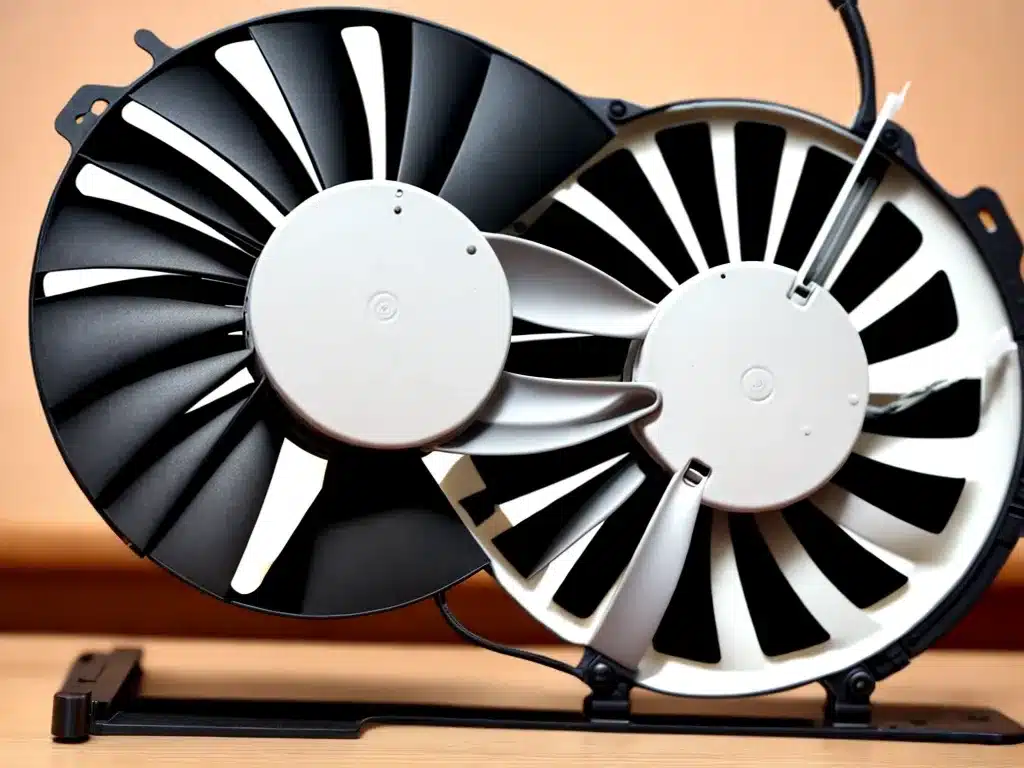A noisy laptop fan can be annoying and distracting. Fortunately, in most cases, it’s relatively easy to fix. Here are some tips to diagnose and resolve excessive laptop fan noise.
Diagnose the Problem
The first step is to figure out exactly where the noise is coming from. Place your ear close to the various vents and fans to isolate the location.
- Is it coming from the main cooling fan on the bottom or rear?
- Or is it from the smaller fan in the power adapter?
- Listen for grinding, buzzing or whistling sounds. These types of noises often indicate a fan issue.
Pay attention to when the noise occurs. Does it happen:
- When the laptop is under heavy load?
- During certain programs or games?
- When plugged in or on battery power?
- At start up or during sleep/wake?
Take note of any other symptoms, like overheating, crashes or slow performance. These clues can help pinpoint the culprit.
Clean the Fans and Vents
Dust buildup is a common cause of increased fan noise. Over time, dust gets sucked into the laptop and clogs the fans and vents. Cleaning them out can remove these obstructions and allow air to flow properly again.
Supplies You’ll Need
- Compressed air (canned air)
- A soft paint brush
- A vacuum cleaner with brush attachment
Process
- Power down and unplug the laptop.
- Use the compressed air to blow out any visible dust from the vents.
- Use the brush to loosen any stuck-on debris.
- Use the vacuum on low suction to capture any loosened particles.
- Start from the vents and work your way in, so you push dust out rather than suck it in deeper.
- Remove any accessible panels or covers to reach internal fans.
- Avoid spinning fans directly with air or vacuum.
Cleaning probably won’t fix mechanical fan issues, but it can reduce noise and overheating related to blocked vents.
Update or Reinstall Drivers
Outdated, buggy or corrupted drivers can also cause excessive fan noise. Updating or reinstalling your laptop’s chipset, GPU and other hardware drivers may help.
How to Update/Reinstall Drivers:
- Find your laptop model on the manufacturer’s website.
- Look for the latest driver versions for your specific configuration.
- Download and run their driver update utility. This will identify outdated drivers.
- Download each new driver individually and install them.
- Reboot after each driver is installed.
- Alternatively, reinstall rather than update for a clean slate.
Keep your drivers updated, especially GPU, to prevent fan issues related to software.
Adjust Power Settings
The way your laptop manages power consumption can affect fan behavior. Tweaking these settings may help:
-
Switch to “Balanced” or “Power Saver” power plan in Windows settings instead of “High Performance” to reduce heat.
-
Change lid close behavior to “Sleep” to avoid overheating in a bag.
-
Disable “Turbo Boost” or processor performance boost to limit max speed.
-
Adjust fan control options to let fans run faster and more consistently.
Reducing CPU/GPU speeds lowers temps so fans don’t have to work as hard. Optimizing power can minimize abrupt fan surges.
Replace Faulty Hardware
For fans making grinding, rattling or buzzing instead of whooshing sounds, physical damage or wear is likely the culprit. Replacing the defective components may be required:
-
Replace the fan if blades are chipped or rubbing, or bearings are worn out.
-
Replace heat sink if clogged with dust or separated from CPU.
-
Replace power adapter if noise originates from brick fan.
-
Replace motherboard if onboard fan connectors are damaged.
This may require taking apart the laptop and identifying serial numbers to find the right replacement parts. Have a professional do repairs if you’re not comfortable.
With some diligent troubleshooting and targeted maintenance, you can solve most excessive laptop fan noise issues. Just take it step-by-step.













